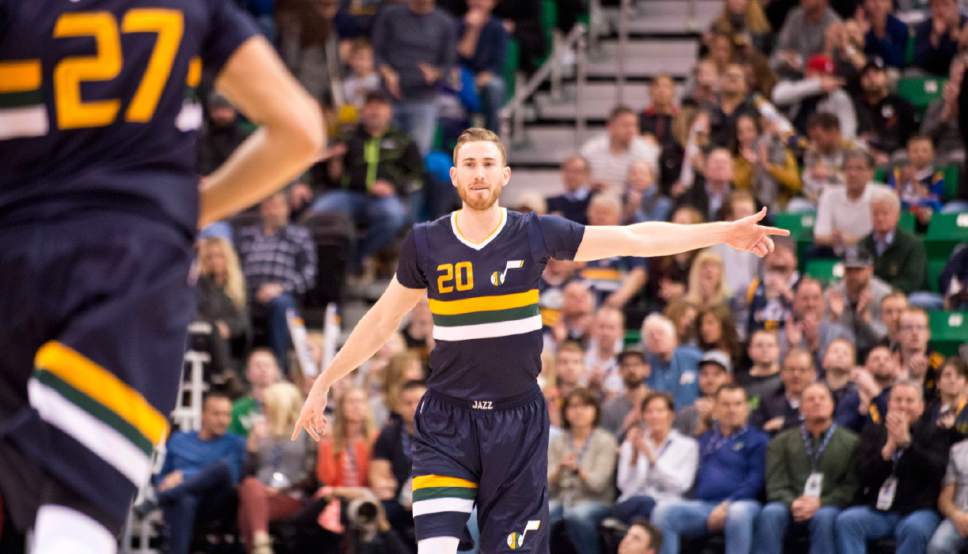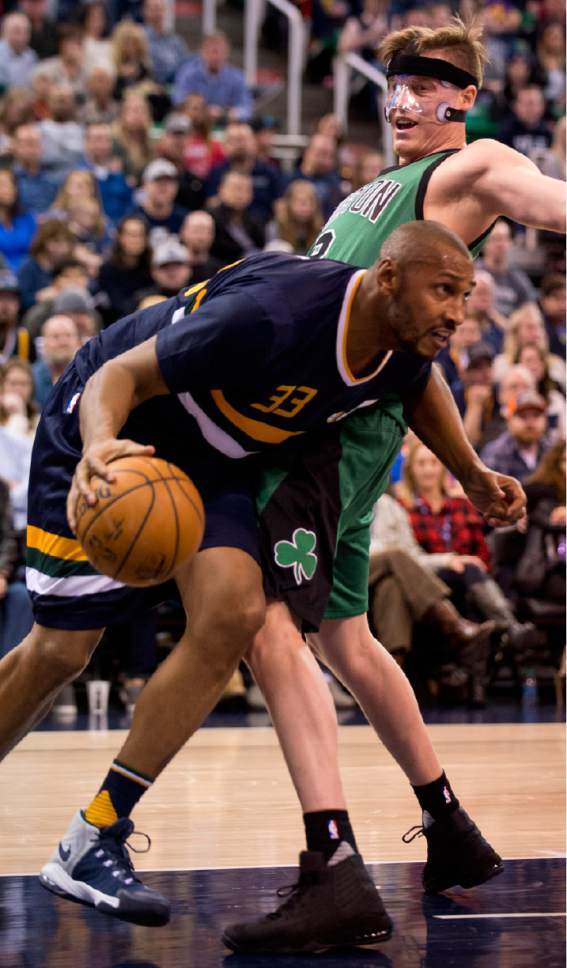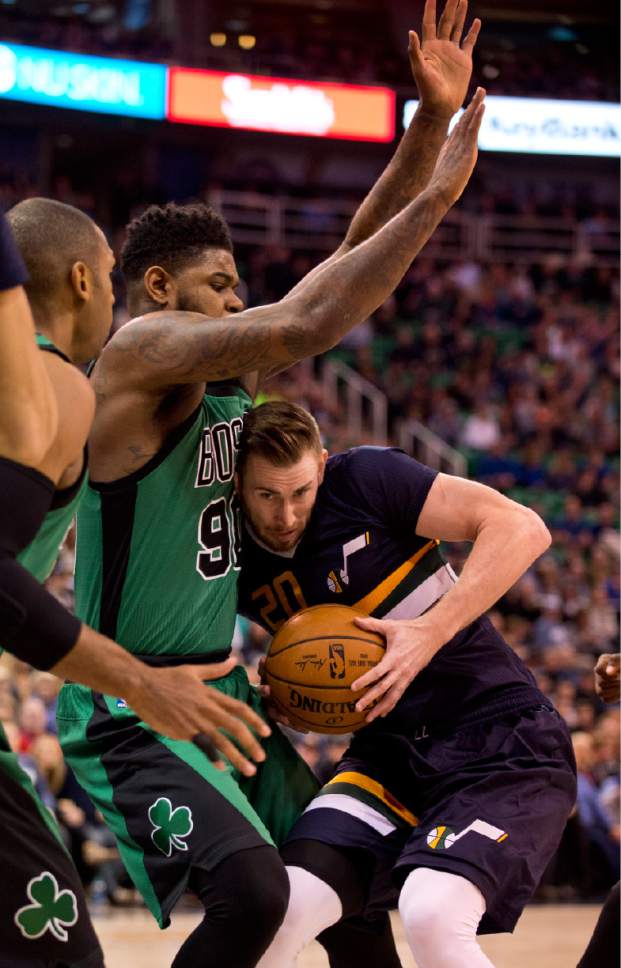This is an archived article that was published on sltrib.com in 2017, and information in the article may be outdated. It is provided only for personal research purposes and may not be reprinted.
The Jazz's only consolation emerging from Boston's performance against them Saturday night is that the Celtics suddenly seem less likely to pursue Gordon Hayward in free agency this summer.
Why do they need him?
Then again, an opposing conclusion also is possible: Hayward naturally would want to join such an efficient operation and make it even better — while playing for Brad Stevens, the coach in his Butler University days.
The Jazz and Celtics have followed parallel tracks of tearing down and rebuilding over these past four seasons and have posted similar year-by-year records. But one franchise's project appeared far more advanced than the other's at Vivint Smart Home Arena.
In a 112-104 victory, Boston shot 67 percent from the field in the first half and wobbled only after leading by 23 points in the fourth quarter. Hayward scored 31 points, not nearly enough on a night when the Jazz needed a closing flurry just to shoot 41 percent.
"They have developed an identity, which we've tried to do as well," Jazz coach Quin Snyder said before the game. In this case, offense beat defense.
So the Jazz (34-21) have only a half-game lead over the Los Angeles Clippers (33-21) for the No. 4 spot in the Western Conference and home-court advantage in the first round of the playoffs. Conveniently enough, the Clippers will come to town Monday as the schedule moves toward the All-Star break.
Having lost to Dallas and Boston in their last two games, the Jazz will need wins over the Clippers and Wednesday against Portland to feel satisfied going into their vacation.
For all the Jazz have accomplished this season amid the complications caused by injuries, the sobering part of this rebuilding project is that they're still not quite at the level where they resided seven years ago — which nobody around here thought was quite good enough.
The Jazz stood 36-19 at this point of the 2009-10 season, on their way to 53 wins. That year marked the end of the Deron Williams-Carlos Boozer partnership and remains a landmark as the last time the Jazz won a playoff game.
Defeats such as the one at Dallas, where the Jazz lost a 21-point, third-quarter lead, and another discouraging loss Saturday, when Boston led from start to finish, remind everyone that this team has a long way to go in hopes of succeeding in the playoffs.
And for all the good work Snyder is doing with the Jazz, Stevens is thriving even more with the Celtics. Starting with each franchise's tearing-apart season of 2013-14, the Jazz have won 25, 38, 40 and 34 games. The Celtics have won 25, 40, 48 and 35 games.
Jazz general manager Dennis Lindsey and Boston's Danny Ainge have basically gone about this stuff the same way, the biggest difference being that the Celtics live in the more forgiving Eastern Conference. "They have developed an identity, which we've tried to do as well," Snyder said. "In either case, the draft has been a focal point [with] development."
Hayward is the Jazz's homegrown All-Star. By scoring 27 points or more in five of six games, Hayward has raised his average to 22.4 points — just outside the NBA's top 20. Just imagine if he had completed a 36-point night by hitting a game-winning shot at Dallas, where the Jazz ended up losing in overtime. Yet even factoring in that miss from the left corner, he has been phenomenal lately — having come a long way from the Butler days when Stevens tried to convince Hayward how good he was and prod him to become more assertive offensively.
"It's special to watch him," Stevens said before the game. "He's showed tremendous growth through all of his years playing, and certainly all of his time here. … He's playing in a great system for him."
But then the Celtics went out and showed the Jazz what an effective offense really looks like.
Twitter: @tribkurt







